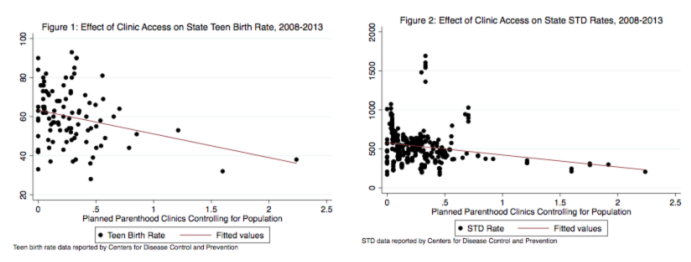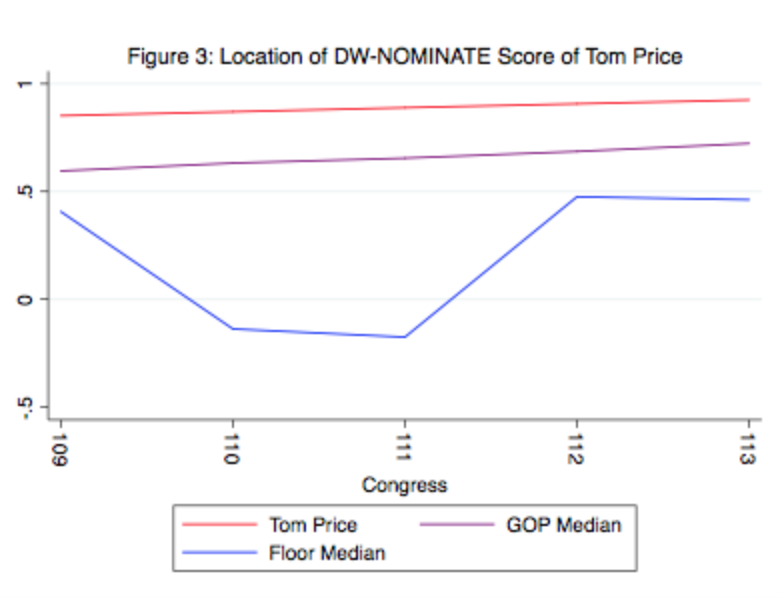
Among President-Elect Donald Trump’s recent cabinet announcements is that of Health and Human Services, for which he has chosen staunch ACA and reproductive choice opponent Representative Tom Price. While qualified for the position as a long-time orthopedic surgeon and member of Congress, much of his political record are deeply troubling in looking to the future of the American healthcare system.
To a long-time observer of American politics, it comes as little surprise that there is ample politics in policy. Yet one domain in which this can be troubling is that of healthcare. After all, cancer, heart disease, and diabetes do not discriminate among Democrats and Republicans. Physicians treat patients of different ideologies and socioeconomic status, and following the Hippocratic Oath they look after the safety and wellbeing of those who are in their care.
To be sure, physicians have their own policy and partisan preferences, though typically they are not (or should not be) on display in an exam room. Indeed, there are are matters of healthcare that may well be in contest with one’s own partisan politics, such as the virtues of Medicaid expansion under the ACA or access to women’s health clinics that, among many other services such as cancer screenings and family planning services, do provide abortions. While scaling back the ACA and restricting access to clinics such as Planned Parenthood is a popular talking point for members of the Republican Party, many physicians see the benefit that their patients reap from obtaining insurance regardless of preexisting conditions and from obtaining affordable contraception.
Yet Mr. Price, placing his partisan politics above medical judgments in many prominent respects, does not recognize these benefits. Rather, he has been among the fiercest opponents.
Indeed, in 2015 he co-sponsored HR 3134, the Defund Planned Parenthood Act of 2015. He has additionally voted against Infant Mortality Pilot Programs (2010), Funding to Combat AIDS, Malaria, and Tuberculosis (2008); Children’s Health Insurance Reauthorization Act of 2007, and he has voted in favor of repeals of provisions of the ACA.
As an orthopedic surgeon whose residency was completed at Emory University and after which directed an orthopedic division of a large hospital in Atlanta, Mr. Price likely saw patients of a range of ages, from younger athletes to more elderly patients whose injuries associated with older age required treatment. And having provided these medical services at major hospitals accepting both Medicare and Medicaid, rather than serving wealthy private-pay clients who would seek medical attention without regard to insurance status, Mr. Price doubtless saw the benefits that his patients reaped from having access through these government programs to the care that aided their healing and mobility. These programs accepted by the hospitals at which he provided care, and from which his patients benefited, are the very programs that he seeks to privatize, thus stripping federal protection of these core medical benefits for seniors and the poor.
Mr. Price may have pledged to do no harm as a practicing physician, but as a legislator and presumptive Secretary of Health and Human Services, it is difficult to see as anything but deeply harmful his assault on programs that care for the physical and mental well-being of some of the most vulnerable subsets of the population.
While Mr. Price and his family currently live a life of much privilege, as a father no doubt Mr. Price understands the fear that a parent would have should their child fall ill when medical treatment is difficult to come by. And as a resident and then attending at major hospitals, no doubt Mr. Price treated families experiencing just those concerns, which the Children’s Health Insurance Program (CHIP) works to address by providing health care coverage to over 8 million low-income children. And yet despite knowing — and as a physician, seeing up close — the importance of delivering quality, affordable healthcare to children so that they may go on to thrive in their adulthood, Mr. Price voted against its reauthorization.
Among the most deeply partisan issues of the recent election cycle was the expansion versus repeal of the ACA which — for all its faults with respect to continued underinsurance of millions — expanded the number of insured Americans by approximately twenty million. As someone who practiced as an orthopedist for over twenty years, Mr. Price should know the impact that insurance coverage has on one’s willingness to pursue treatment for their injuries, and the sometimes dire consequences of going untreated due to lack of insurance. Despite this, he has sought to repeal the Act, challenging the “stifling and oppressive federal government,” with the GOP replacement plans all estimated to reduce the number of insured Americans and the extent to which they are covered. If there were any doubt as to Mr. Trump’s seriousness about dismantling the ACA, those doubts have now been vanquished.
As both a politician engaging in diverse matters of public policy, and as a physician who had many patients with diverse stories, Mr. Price no doubt understands the important role that mental health plays in physical health as well as worker productivity and potential proclivity toward substance use and abuse. Indeed, Mr. Price’s own state of Georgia ranks 47th out of 51 in access to mental health care according to Mental Health America. This carries physical, emotional, and economic consequences, with major depressive disorder costing an estimated $210.5 billion, raising the prevalence of other medical conditions that require treatment (which carries additional expenses and stressors), and in extreme cases, suicide.
The legislation of which Mr. Price has been a fierce critic, the Affordable Care Act, created one of the largest expansions of mental health and substance abuse coverage in a generation. Among its requirements were that all marketplace insurance plans, and most individual and small employer health insurance plans, provide coverage for mental health and substance use treatment services. While some attention has been paid to addressing ways to continue to protect those with pre-existing conditions, Mr. Price and his Republican colleagues have yet to provide answers as to the future of mental health treatment in the absence of the ACA, whose progress has not yet had the chance to be fully realized. Leaving these populations of individuals, already vulnerable, without an affordable means to address mental health or substance use concerns, would be deleterious to their physical health, and well beyond what many physicians would deem permissible.
Moreover, while opposition to abortion access is a position commonly held among those on the right, the Planned Parenthood clinics that Mr. Price has sought to defund provide a range of affordable family planning services that contribute to the physical and economic well-being of the nation. The National Campaign to Prevent Teen and Unplanned Pregnancy estimated that the cost to taxpayers associated with teen childbearing was $9.4 billion in 2010 alone. As Figure 1 illustrates, greater access to Planned Parenthood clinics is associated with marked declines in teen childbearing, with my own research showing additional effects of curbing sexually transmitted diseases and HIV.
Similarly, Figure 2 shows that greater access to women’s health clinics is associated with lower rates of sexually transmitted disease diagnoses, the medical treatment of which aggregated to an estimated $16 billion in 2010. These issues will never disappear, but they can be minimized by maximizing access to these medical services that Mr. Price has shown himself committed to eliminate. The Vice President-Elect Mike Pence is himself, though vehemently pro-life, well-acquainted with the pitfalls of aggressively curbing access to Planned Parenthood clinics, with his slashing of funding to the organization in Indiana sparking an HIV outbreak in Scott County, which in the absence of Planned Parenthood no longer had an HIV testing center.
The outcomes of fewer teen births and fewer STD diagnoses are surely beneficial from both medical and economic standpoints, and yet even as a physician this information has yet to sway Mr. Price in his vehemently supporting the organization’s defunding and even going so far as to dispute that any women struggle to afford birth control. He even went so far as to cosponsor in his first year as a congressman HR 552: Right to Life Act, which was legislation to define personhood in the 14th Amendment of the Constitution as beginning at the point of fertilization, without any exceptions listed with regard to rape, incest, or the health of the woman. While an orthopedist and not an obstetrician, as a physician Mr. Price surely had some female patients, and as their physician it was incumbent upon him to provide them with the best care. That care does not include contributing toward their being sentenced to motherhood because they were subjected to a violent crime, nor should it include forcing a woman into a life-changing decision that would carry a high risk of compromising her health and safety.
One cannot expect a cabinet appointee to be devoid of partisan preferences. Indeed, partisan political experience often contributes heavily toward their nominations. And unlike the selection of Senator Sessions for Attorney General, despite his staunch conservatism even relative to his own party (see Figure 3), Mr. Price does not present existential threats to democratic institutions, but rather strident challenges to policy issues that too often are rendered partisan.
However, the consequences of Mr. Price consistently ignoring the empirical evidence in favor widely-used healthcare programs — even despite his medical expertise — have both vast economic and human consequences that will be all the graver upon his presumptive confirmation as Secretary.
Note: An abridged version of this piece appeared in The Guardian on November 30, 2016.

 RSS Feed
RSS Feed